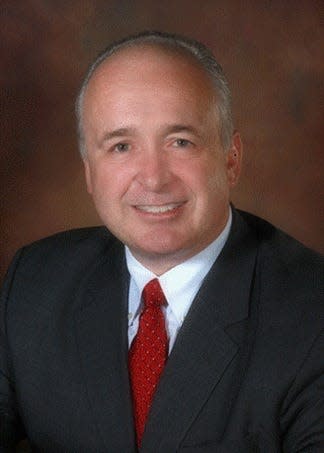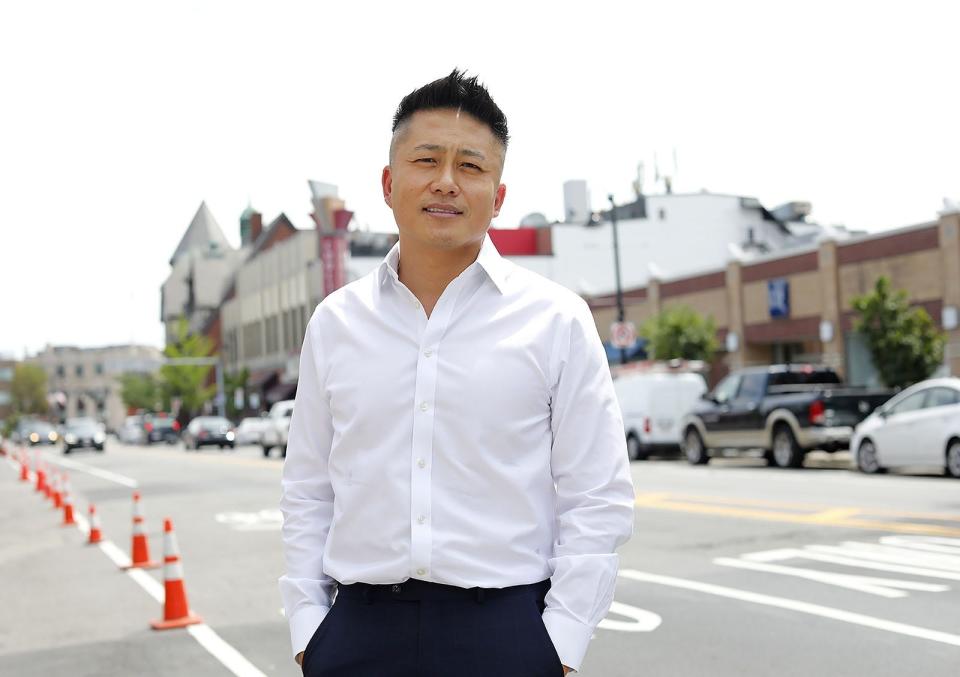South Shore employers forced to get creative to fill jobs amid pandemic
MARSHFIELD – After former President Donald Trump limited immigration, hiring new people for the nonprofit Road to Responsibility, in Marshfield, became a challenge.
Then the pandemic hit.
"This has been a slow-moving car crash and we have been watching it unfold in the field for years," Road to Responsibility CEO Chris White said. "Immigration slowed the crash and COVID has accelerated it to a dramatic degree."
Much of White's workforce is made up of immigrants, but since the pandemic, border restrictions have kept the number of people coming into the country, including those seeking asylum, to a trickle.
The nonprofit provides services to adults with developmental disabilities, including group homes, job placement and home health aides.

Road to Responsibility has 225 vacant positions, many entry level but some in management, representing 25% of his staff. He increased the base salary twice in the past eight months to $17 an hour and he's offering $2,500 recruitment bonuses.
"It's a brutal market for us," he said.
Despite the increases in wages and benefits, many people accept jobs and then never show up for orientation.
Many people are seeking remote work, something not possible for most of the jobs White needs filled, and others are afraid that physically working with clients will increase their chances of getting COVID-19. White's workforce is 80% women and many won't come back to work until they have consistent child care, another industry hit hard by the pandemic.
Prepandemic, White's turnover rate was 19%, one he said he could handle. Between March 2019 and November 2021, that rate increased to 53%.
"That was not sustainable," White said.
A tight labor market, locally and nationally
White's experience is indicative of national and state trends as employers are reporting a tight labor market with more jobs than people willing to fill them.
Ken Strong, executive director of Dwyer Home in Weymouth, said he had to fire eight employees who refused to get the COVID-19 vaccine at his short-term rehabilitation center. While he's been able to partially fill those full-time positions, he has had a much harder time finding substitute workers to fill in when staff get sick, is exposed to COVID-19, or has to care for family members sick with the virus.

Strong hires per-diem workers to fill in for staff who are out. Those at-will employees cycle through his nursing home.
"It's a revolving door, with people coming in and people leaving," he said.
At South Shore Health, staffing shortages have been an issue for months after staff retired during the summer or left for other jobs, South Shore Health President and CEO Dr. Allen Smith previously told The Patriot Ledger.
Jan. 7, 2022: National guard sends 10 to help South Shore Health amid staffing shortage, COVID surge
Weymouth dentist Rick Wolfert, of The Tooth Boss, said replacing an oral hygienist who left over concerns about her health was a struggle because many people have been afraid to go back to work in a field that is very high risk for COVID-19 transmission.
Reduced train and bus service
Bus drivers and train conductors are in short supply at the MBTA, where the No. 240 bus line through Milton and Randolph will lose a weekday inbound trip from Randolph High School at 2:30 p.m. and its Sunday schedule will change, one of more than 30 lines facing reduced service.
Overall, the agency is dropping 5% of its scheduled bus trips because of a lack of drivers. The MBTA is budgeted for full service, but more drivers and other staff are needed, MBTA General Manager Steve Poftak said in a statement.
Plymouth & Brockton Bus Co. President Win Sargent said getting enough staff has been a struggle, even as his company has raised its hourly rates for the unionized workplace and brought back many of the drivers who were furloughed while the service shut down for a year at the start of the pandemic.
"We're consistently trying to find people," Sargent said. "For us, it seems the word of mouth throughout the industry is working, most notably from our current workforce telling their friends who are drivers."
Sargent said he has three or four open driver positions. Candidates must have a commercial driver's license, be used to driving a bus and understand that customer service is part of the job.
Data from the U.S. Department of Labor from the end of last year, analyzed by Moody's Analytics, showed Massachusetts has one of the worst worker shortages, with a job opening rate of 8.1% and a hiring rate of 4.1%. The labor pool is still diminished as residents care for children or stay cautious about going back to work because of COVID-19.
Quincy Asian Resources Inc. CEO Philip Chong said his organization has partnered with Amazon.com to help provide immigrants with jobs as delivery drivers in Providence, Rhode Island. The tight labor market means competitive wages, at least $18 an hour.

People are more willing to walk away from jobs than ever before, which means employers need to start thinking differently about their relationships with their employees. And it's not just about how much people are being paid, he said.
"The No. 1 reason to stay at a job is they have to feel good, that every day when they get up, they feel empowered to go to work," Chong said.
Chong's nonprofit works with companies to help provide, train and retain their workforce.
"I beg for big employers who are talking about innovation, come to us," he said. "If you want innovation, please come to us."
At Road to Responsibility, White said he is trying everything he can to retain employees, and they kicked around the idea of starting a child care center, but that came with the same problems they're already facing: an inability to hire enough people.
While the base salary was raised twice at Road to Responsibility, that was done with one-time funds from the state. The majority of the nonprofit's revenue comes from contracts with the state or services provided through MassHealth, so the state contracts need to be adjusted so they can keep paying the higher rates. But fixing the lack of staff requires a longer-term outlook, White said.
"Massachusetts is an expensive place to live and wages at the direct-care level and up need to increase significantly before we really get any major traction," White said.
Elissa Sherman, president of LeadingAge, an association of not-for-profit groups that provide senior housing, said staffing was a problem even before the pandemic, a challenge made harder because the reimbursement rates for nursing homes, assisted living, home health aides and other services are usually set by state and federal insurance programs. Increasing wages to entice more workers requires changes at the governmental level.
"For the most part, we don't find them at a level that's commensurate with what the job entails," she said.
Sherman said there aren't enough people to take care of an aging population, and the restriction of immigration has made the problem worse.
Greater Boston Food Bank CEO Catherine D'Amato told the New England Council recently that her organization has been "challenged" to attract employees.
D'Amato told the council that increasing base wages is a "huge starting point for addressing food insecurity" because it could help attract more employees to help fight hunger.
"I compete with every retailer that has a warehouse. I compete with Amazon, I compete with Walmart," D'Amato said. "That wage will make a difference. We all want to retain our workers and we all want them to live healthy lives. I do. My hope is that other businesses do too. I think you can do well by doing good with your workers."
Interested in the labor market? Read more of The Patriot Ledger's coverage
Jan. 7, 2022: National guard helps out South Shore Hospital amid staffing shortages
Dec. 8, 2021: 'Still desperate': South Shore employers struggle; Mass. has worst labor shortage in US
Dec. 8, 2021: MBTA workforce shortage results in reduced bus, trolley service on South Shore
Sept. 30, 2021: Hospitals: Staffing problems are 'really bad'
Sept. 3, 2021: 'It's crazy right now': Nationwide labor shortage hits South Shore businesses
Thanks to our subscribers, who help make this coverage possible. If you are not a subscriber, please consider supporting quality local journalism with a Patriot Ledger subscription. Here's our latest offer.
State House News Service material was used in this report. Reporter Joe Difazio contributed to this report. Reach reporter Wheeler Cowperthwaite at wcowperthwaite@patriotledger.com.
This article originally appeared on The Patriot Ledger: Labor shortages across MA force South Shore employers to get creative

